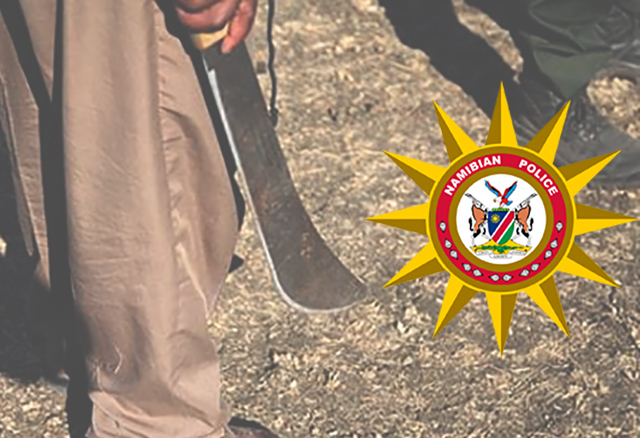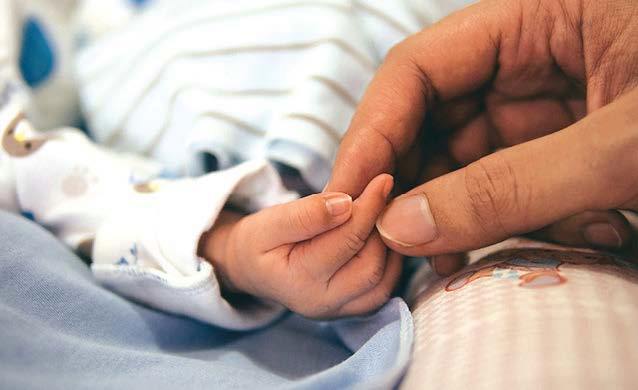KINSHASA – He appeared on stage six hours late and his flowing American Indian robes and gaudy headdress baffled many, but for the thousands who thronged to see him, Papa Wemba was never going to disappoint.
Bellowing out his traditional welcome cry – “Mongrokoto!” – the 54 year-old singer launched into his first song, signalling the emotional return of a Congolese and African superstar after an ordeal including months in a French jail. “I can’t believe my eyes.He’s back.When he was arrested, we didn’t think that he would ever return,” cried 20-year-old Tanya Bolenge as Papa Wemba appeared on stage.Born to a professional mourner and a former soldier in the Belgian army, Papa Wemba’s journey has taken him from a corner in the south of a country then known as Zaire to success in Kinshasa’s slums, national and international acclaim and, more recently, notoriety.The latest controversy surrounding the star stems from his arrest in France last year, accused of having helped smuggle hundreds of Congolese into Europe using his band as a cover.Police say that 200 people who were given visas for France on the understanding they were part of Papa Wemba’s entourage failed to turn up when it was time to return home.Papa Wemba, a pioneer of Congolese Rhumba Rock, spent nearly fours months of 2003 in prison and must return to face charges in both France and Belgium towards the end of the year.The singer has returned for his first concerts in Congo since his arrest to thank his people for their support and to announce that, after 18 years in Europe, he is coming home.”This legal problem is not yet resolved, but I am confident in the justice system and I’m sure they will prove me innocent,” he told Reuters in Kinshasa.”After the verdict, my wife and I will pack our bags and come back to our country.”He said his time in prison had intensified his faith in God and forced him to reconsider life but, in his trademark baggy trousers and a garish designer shirt, he was quick to reassure fans he still had the flamboyance that has made him so popular.Papa Wemba was a leading member of the dynamic Congolese music scene in the 1970s before moving to Europe, where he established a name for himself blending traditional African rhythms with pop music, recording albums and touring the globe.Although Europe has been his home for almost two decades, he has often returned to Congo and maintained strong links with his native country, where, during years of suffering, he has been a symbol of escapism for youth.In a country whose latest war ended just two years ago and killed at least three million people, mostly through starvation and disease, whether Papa Wemba is guilty or not seems to matter little.He remains a hero.”Even if he did do it, it shows he loves the Congolese people.At least he’s is a patriot and trying to help the people,” said a street hawker in Matonge, the district in Kinshasa where Papa Wemba grew up.At a time when people have little regard for leaders who dragged them through years of dictatorship, civil war and a stumbling transition towards democracy, Papa Wemba is an icon.Banners welcoming their hero are strung across the neighbourhood’s dusty and decrepit streets.One, known as Kandakanda Street, is lined with simple houses and tiny stores selling the bare essentials – beer, hard boiled eggs and washing powder.Soapy water splashes onto passers by from the tubs of women doing their washing, while the latest Congolese rhythms and the smell of meat cooking on an open grill waft from nearby bars.This is where Papa Wemba grew up and – despite his fame and fortune – this is where he always returns, residents say.”Even when he was in prison, he wrote to me.He has never lost touch with us,” said 51-year-old Gele Siasia, an unemployed neighbour who says he played football with Papa Wemba as a child and still thinks of him as a big brother.Neighbours credit him with helping the community when there are problems, supporting youth activities and, in some cases, stepping in where the government had failed in repairing roads or the electricity supply.Some even suggest that his popularity and the failure of those currently in power would justify his entering politics.Others argue he is doing enough:”He’s already our leader but he’s mainly a musician and we prefer that he stays that way.As a politician, we would never see him,” said Siasia.- Nampa-Reuters”I can’t believe my eyes.He’s back.When he was arrested, we didn’t think that he would ever return,” cried 20-year-old Tanya Bolenge as Papa Wemba appeared on stage.Born to a professional mourner and a former soldier in the Belgian army, Papa Wemba’s journey has taken him from a corner in the south of a country then known as Zaire to success in Kinshasa’s slums, national and international acclaim and, more recently, notoriety.The latest controversy surrounding the star stems from his arrest in France last year, accused of having helped smuggle hundreds of Congolese into Europe using his band as a cover.Police say that 200 people who were given visas for France on the understanding they were part of Papa Wemba’s entourage failed to turn up when it was time to return home.Papa Wemba, a pioneer of Congolese Rhumba Rock, spent nearly fours months of 2003 in prison and must return to face charges in both France and Belgium towards the end of the year.The singer has returned for his first concerts in Congo since his arrest to thank his people for their support and to announce that, after 18 years in Europe, he is coming home.”This legal problem is not yet resolved, but I am confident in the justice system and I’m sure they will prove me innocent,” he told Reuters in Kinshasa.”After the verdict, my wife and I will pack our bags and come back to our country.”He said his time in prison had intensified his faith in God and forced him to reconsider life but, in his trademark baggy trousers and a garish designer shirt, he was quick to reassure fans he still had the flamboyance that has made him so popular.Papa Wemba was a leading member of the dynamic Congolese music scene in the 1970s before moving to Europe, where he established a name for himself blending traditional African rhythms with pop music, recording albums and touring the globe.Although Europe has been his home for almost two decades, he has often returned to Congo and maintained strong links with his native country, where, during years of suffering, he has been a symbol of escapism for youth.In a country whose latest war ended just two years ago and killed at least three million people, mostly through starvation and disease, whether Papa Wemba is guilty or not seems to matter little.He remains a hero.”Even if he did do it, it shows he loves the Congolese people.At least he’s is a patriot and trying to help the people,” said a street hawker in Matonge, the district in Kinshasa where Papa Wemba grew up.At a time when people have little regard for leaders who dragged them through years of dictatorship, civil war and a stumbling transition towards democracy, Papa Wemba is an icon.Banners welcoming their hero are strung across the neighbourhood’s dusty and decrepit streets.One, known as Kandakanda Street, is lined with simple houses and tiny stores selling the bare essentials – beer, hard boiled eggs and washing powder.Soapy water splashes onto passers by from the tubs of women doing their washing, while the latest Congolese rhythms and the smell of meat cooking on an open grill waft from nearby bars.This is where Papa Wemba grew up and – despite his fame and fortune – this is where he always returns, residents say.”Even when he was in prison, he wrote to me.He has never lost touch with us,” said 51-year-old Gele Siasia, an unemployed neighbour who says he played football with Papa Wemba as a child and still thinks of him as a big brother.Neighbours credit him with helping the community when there are problems, supporting youth activities and, in some cases, stepping in where the government had failed in repairing roads or the electricity supply.Some even suggest that his popularity and the failure of those currently in power would justify his entering politics.Others argue he is doing enough:”He’s already our leader but he’s mainly a musician and we prefer that he stays that way.As a politician, we would never see him,” said Siasia.- Nampa-Reuters
Stay informed with The Namibian – your source for credible journalism. Get in-depth reporting and opinions for
only N$85 a month. Invest in journalism, invest in democracy –
Subscribe Now!








